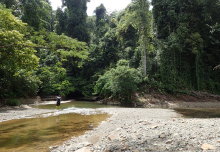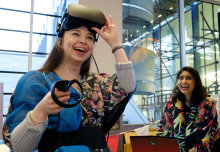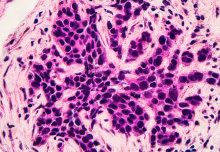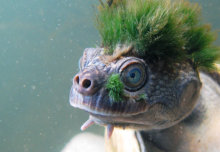

Dry spell
We still don’t know how strange celibate animals evolve
A new study has cast doubt on leading theory for how tiny creatures have evolved for tens of millions of years - without ever having sex.



We still don’t know how strange celibate animals evolve
A new study has cast doubt on leading theory for how tiny creatures have evolved for tens of millions of years - without ever having sex.


Ocean warming can predict land warming with simple model
The temperature trend of continents can be estimated by measuring warming of nearby oceans, revealing a simple behaviour of the climate system.


Imperial professor appointed Research Chair in Data-Centric Engineering
Professor Mark Girolami will study how engineering can use big data to improve practice, including the development of ‘digital twins’.


Small changes in rainforests cause big damage to fish ecosystems
Freshwater fish diversity is harmed as much by selective logging in rainforests as they are by complete deforestation, according to a new study.
 2
2


Audio
Podcast: The science of drumming, Imperial inventions and a lost asteroid crater
In this edition: Keeping beat with the science of drumming, exploring Imperial inventions through the ages, and playing ‘hot or cold’ with asteroids.


New class of drugs could help tackle treatment-resistant cancers
Researchers have discovered a new class of drug that has the potential to help cancer patients who no longer respond to existing therapies.


Actual fossil fuel emissions checked with new technique
Researchers have measured CO2 emissions from fossil fuel use in California and compared them to reported emissions.


Meet the weird reptiles at the short end of the evolutionary stick
Turtles that breathe through their genitals and tiny chameleons are amongst the weird reptiles heading for extinction unless urgent action is taken.


Global carbon emissions could be cut 3% by following the UK’s example
The UK cut its emissions from electricity production by 25% in 2016, using a strategy many countries could adopt to quickly lower carbon emissions.
 3
3


Collaboration could help botanic compound tackle breast cancer and stroke
Researchers at Imperial are teaming up with a company testing a synthetic version of the compound sulforaphane, to see if they can expand its use.
 1
1